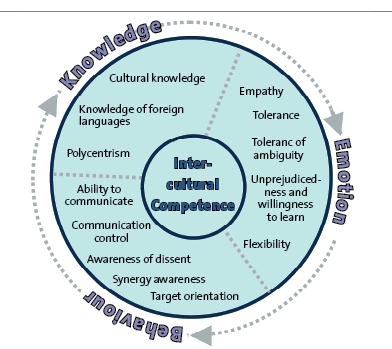ETHNOCENTRISM (aka SOCIOCENTRISM)
A variety of "centrisms" can befall us whether we're trying to understand primary or secondary sources or trying to navigate another culture. Ethnocentrism means judging other cultures [usually critically] according to the assumptions of one's own culture.Or, as Merriam-Webster tells us, it means "the attitude that one's own group is superior." Ethnocentric people blithely assume their race, religion, culture, and nation are superior to all others. They impose assumptions and perspective of their own culture upon all other situations they encounter. Ethnocentric people often judge what is different or strange to them to be "bad, dumb, backward, pagan, primitive," etc. An ethnocentric person from the US, who eats with fork and spoon, might deem the Chinese use of chopsticks to be "stupid." Many cultural stereotypes derive from ethnocentrism. We overcome this disability by becoming astute observers and analysts of other cultures--by developing intercultural competencies. As the illustration to the right shows us, much of cultural is submerged or hidden to casual observation--we must probe carefully and thoughtfully to uncover the invisible elements of another culture.
A synonym is sociocentrism, substituting one's own society or social for one's culture in making the same claims of superiority. Likewise classism denigrates other social groups and other cultures based on one's own social class values. One of my favorite classist comments came from a 19th-century British traveler to Argentina who declared gauchos to be barbarians because they did not use a fork and spoon to eat! Here is an example of US public stereotyping of Latin Americans from 1940. 
Another centrism to be avoided is egocentrism, viewing everything in relation to oneself; being unrelentingly self-centered; distorting "reality" to maintain the primacy of our own selfish person interests. In order to study and learn about other cultures, like Latin America, we must recognize and critique ethnocentric attitudes. We should try to understand another culture in terms of that culture rather than prejudging it as wrong, stupid, backward, etc., simply because it is different or unfamiliar. You'll see many examples of ethnocentric observations as you read the views of foreign travelers visiting Latin America. We are not the only ethno/sociocentric culture on the planet--most cultures have this characteristic. For example, gauchos (cowboys) of nineteenth-century Argentina held in contempt anyone who could not skillfully handle horses and cattle. However, just because a characteristic is widespread (abuse of women, racism, cheating on taxes) does not make it right. We reject such simplistic functionalist views. Coping with ethnocentrism, however, does not mean abandoning one's moral standards. We do not become simplistic functionalists who assume that just because a culture engages in a practice, it is right and acceptable. We do not accept the Holocaust because Nazis thought it was a good idea. We don't embrace bigoted views just because someone expresses them. Human rights abuses remain wrong, regardless of the excuses or explanations of the perpetrators. We still apply our critical thinking skills to all historical and cultural evidence. The second illustration shows some of the qualities (skills and attributes) we develop as we improve our intercultural competencies.